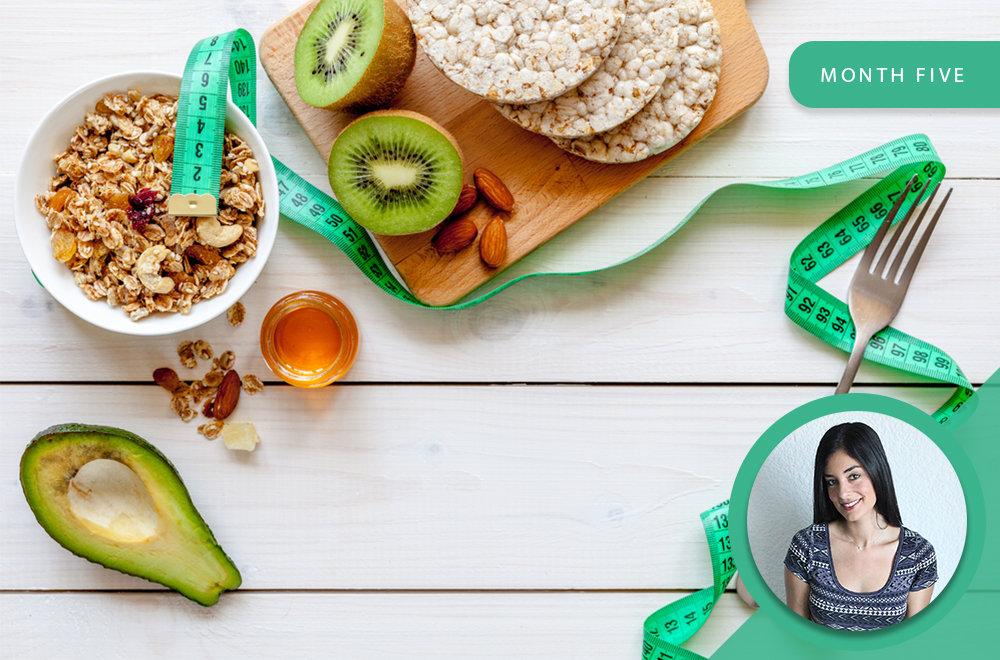
13 Jul Pregnancy: Month 5: What Our Dietitian Has To Say
You are now firmly in the second trimester of pregnancy and are hopefully feeling less nauseous and more energetic, however, you may start to experience other pregnancy-related symptoms such as constipation and heartburn. The increase in progesterone levels during the second trimester causes relaxation of smooth muscles throughout the body, including the muscles of the colon and the rest of the gut. This means that food digests more slowly and the propulsion of food through the colon becomes sluggish, leading to constipation and sometimes heartburn or reflux.
Whilst it is completely normal to experience these symptoms during pregnancy, living with them is not pleasant and they can interfere with your general health by affecting your appetite, food choices and activity levels. So, what can you do to minimize them?
MY TOP TIPS FOR MANAGING CONSTIPATION DURING PREGNANCY:
- Dehydration can exacerbate constipation and drinking enough water can help to move waste through your colon. Your body needs more fluids during pregnancy so make sure to sip water throughout the day and to aim to get at least 2 litres of fluids per day. If you are struggling to get plain water in, try sparkling water or try flavouring your water with fruit, ginger, mint and lemon juice.
- Eat plenty of fibre rich foods. Fibre helps to stimulate the muscles in your colon and makes your stools softer so that you can pass them more easily. Aim for at least 5 servings per day of fruits and vegetables (1 serving = 1 cup of raw vegetables or 1 piece of fruit), along with plenty of whole-grains, legumes, nuts and seeds. Ground flax seeds are very high in fibre and omega 3’s and have a natural laxative effect. Try this easy Pina Colada smoothie, which contains tons of hydrating electrolytes and 6g of fibre per serving.
- Eat small regular meals. Eating helps to stimulate muscle contraction in your colon so eating more regularly can help to combat constipation. Eating at regular times can help your colon get into a pattern and can aid in regular visits to the toilet.
- Listen to your bodies’ cues. Ignoring the urge to go to the toilet can often make constipation worse in the long run. If you get the urge to go, respond promptly and don’t ignore it or delay until later. Once the urge has gone, it can be difficult to get your colon moving when you want it to.
- Iron supplements can cause constipation and stomach discomfort. If your iron levels are normal, ask your doctor or dietitian if you can take a lower dose of iron supplements or not at all. Taking iron supplements every 2nd day, as opposed to daily, can also be a good way to get your iron in without irritating your stomach and becoming constipated. If your iron is low and you need to take iron daily, your doctor or dietitian may also be able to suggest an alternative iron supplement which is gentler on the stomach.



No Comments